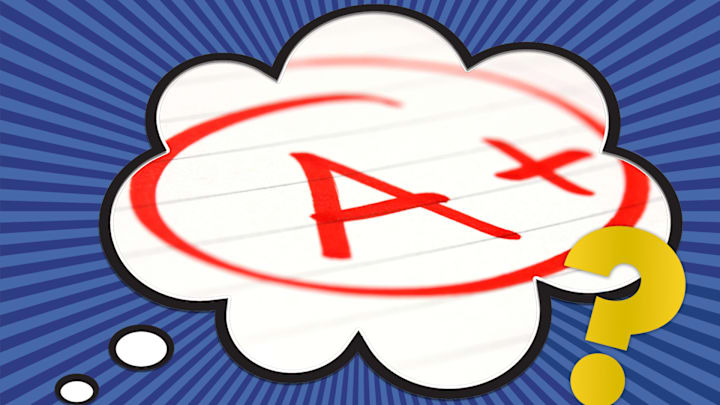Finding out you passed a test with flying colors is fantastic news—except perhaps for your fellow classmates, who might grumble about how your high score ruined the bell curve.
The expression seems to suggest that while you were breezily zooming past your competition—physically or academically—you were waving some sort of multicolored flag or banner just to really rub it in. That’s not exactly how the phrase came to be, but flags were involved.
As early as the late 16th century, per the Oxford English Dictionary, people were using the word colors (or colours) to refer to a set of flags flown by a ship. This gave rise to all manner of phrases that had to do with said colors. Lowering your flags in an act of surrender? That’s striking the colors. Want the enemy to know that you don’t plan on surrendering, even though your ship is now so damaged that the flags are starting to fall of their own accord? Go ahead and nail your colors to the mast. Cruising around under stolen flags so other ships don’t realize you’re actually a band of pirates? You’re sailing under false colors.
Over time, these expressions gained metaphorical meanings, too: Giving up on anything could be called “striking the colors,” whereas nailing your colors to the mast typically refers to candor in conveying your thoughts and beliefs. If you’re sailing under false colors, you’re basically doing the opposite—intentionally misrepresenting yourself in order to dupe or mislead.
Passing with flying colors is a similar case. Doing anything with flying colors simply meant you—as in your ship, your regiment, or some other military entity—were doing something while displaying a flag or ensign that reveals your national identity. Therefore, passing with flying colors could just mean that a ship sailed by without obscuring which country it came from.
But since vessels also flew their colors after emerging from battle victorious, with flying colors came to connote a sense of indisputable success. The first written instance of the phrase was all the way back in 1622. It’s unclear exactly when pass became the favored verb; for a while, come off with flying colors was popular. Considering our global penchant for tests, races, and competitions of all kinds, it seems like pass is probably here to stay.
Have you got a Big Question you'd like us to answer? If so, let us know by emailing bigquestions@mentalfloss.com.
